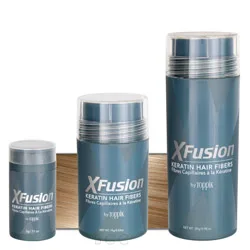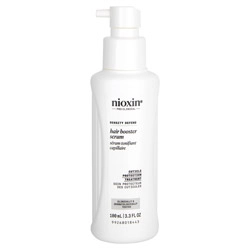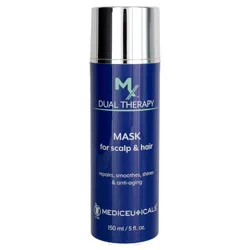Medications that May Lead to Hair Loss
Normal hair sheds about 100,000 hairs in four years or about 500 a week. When shedding rate is faster than replacement rate it results in thinner hair. Faster shedding during spring and autumn is normal for up to six weeks. For anyone to notice hair loss, you would have to lose about 15% of your hair.
Never stop taking your medication because of hair loss or avoid taking it because you are concerned about hair loss. Discuss the problem with your doctor. There are, however, some steps you can take to help your body resist hair loss when using medication.
MEDICATIONS
- Aspirin can lower hemoglobin levels which results in a mild anemia. Iron is essential for hair growth and a deficiency may cause thinning or shedding hair. Your doctor may suggest iron supplements. You should include more iron rich foods, such as spinach or lean red meat, in your diet.
- Thyroid drugs can result in hair loss or hair being brittle, dry and dull. When you have a hyperactive thyroid, the reproduction of hair follicle cells speeds up and hair falls out faster than they can be replaced. If you have hypothyroid, hair does not grow back as quickly leaving thinning patches. Your doctor may need to adjust your medication. You need to be sure to discuss the problem with the doctor when you first notice the problem. You can also use shampoos, conditioners and other hair products that work to add volume and luster to your hair.
- Hormone Replacement Therapy drugs and Contraceptive Drugs are androgenic, meaning they contain male hormones. This can lessen hair growth. Natural microscopic shrinking of hair follicles occurs naturally as we age. This results in smaller hair. You and your doctor can decide if a drug that is anti-androgen would be an effective right choice for you.
- Cholesterol inhibitors may be the thinning hair culprit in about 1% of cases. It's the same for anti-depressants. If taken regularly for over three months, anti-inflammatory painkillers can also cause hair thinning in about 3% of cases. Again, discuss it with you doctor. Do not stop the medication.
- Psoriasis Drugs may slow down the product of new skin cells but may have the side effect of changing the hair color or making it curly. The reasons are unclear, but it is thought the drugs interfere with the structure of the hair's root. Hair returns to its normal state when treatment ended.
- Acne medications containing retinoid, which is derived from vitamin A, may cause hair loss. Vitamin A protects hair follicles, but too much may temporarily shut down the follicle. They affect the cells that produce keratin so can cause changes in density, appearance and color. In all cases these changes were temporary and hair returned to normal within a few months once treatment ended.
- Antibiotics reduce hemoglobin and can lower vitamin B levels that make hair fall out faster. You can take a vitamin B supplement while you are on the antibiotics. Remember, the illness you're being treated for may also be the culprit so discuss it with your doctor.
VITAMINS
- Vitamin A is essential for healthy hair. However, taking more than 10,000 IU's a day can make your hair fall out as it increases cell reproduction in hair follicles. This means they reach the end of their growth phase faster. You should lower your dosage.
- Vitamin C can be over-used. Many people take large doses of vitamin C, especially when fighting a cold. Although the body may flush out excess Vitamin C, there are side effects. Vitamin C affects skin cell reproduction and increases the levels of pityrosporon ovale yeasts which cause flaky, inflamed scalps. You need to reduce your dosage.
- Vitamin E used to excess can lower the absorption of iron in the body. Brittle, thinning hair results when your body does not have enough iron. Taking both vitamin E and iron counteract. If you are taking both, take one in the morning and the other in the evening.
HAIR CARE Using a shampoo, conditioner and styling products designed for fine or thinning hair will help keep your hair at its possible best while taking a medication that is causing hair problems.
Related Products
Comments & Discussion
No comments yet.
66919


 write a review
write a review

 write a review
write a review
